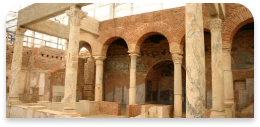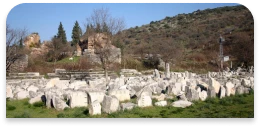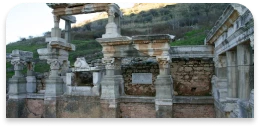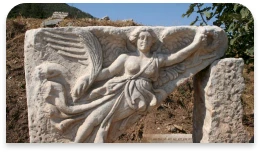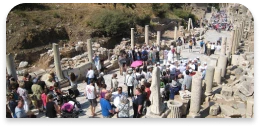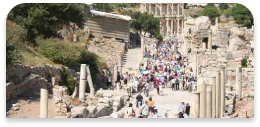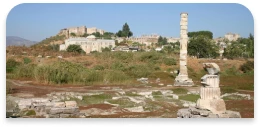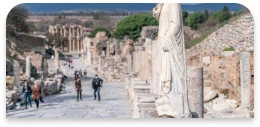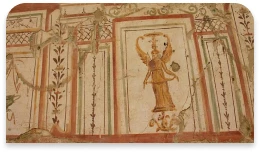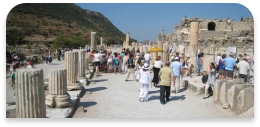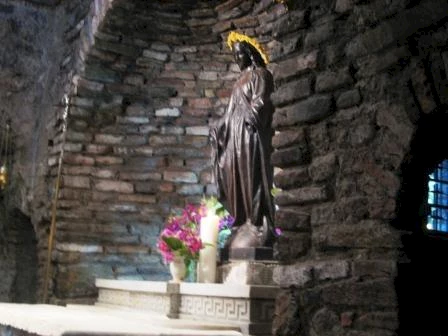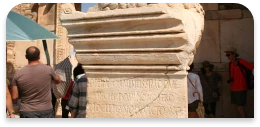Slavery in Ephesus
In Greek time slavery had been in existence. Slaves were usually conquered people, kidnapped people or prisoners of war. Children sold by their fathers, fathers sold by their children or wife sold by her husband in markets were also slaves. It was possible to buy a slave from agoras (market) because kidnapping and selling humans as half naked at the city markets was very common.
The slave trade became a commercial activity particularly in the 1st century BC till 2nd century AD. The age, hometown, abilities and disabilities of the slave and even “on sale” or “to be sold” expressions were written on a pendant.
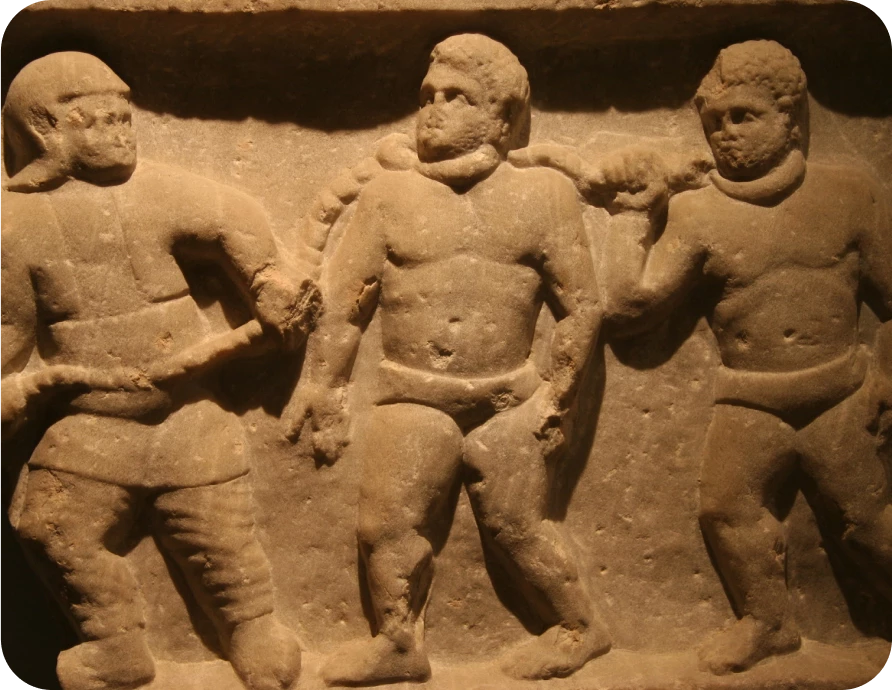
The most important thing in the slave trade was the slave’s strength, skills and beauty. Slave prices were different according to their skills and beauty. Notification of the overseas slaves was white color painted feet which meant plague. The prices of doctors, architects, musicians or vase painters were high. After the sale, slaves would be employed as foster mothers, shepherds, guards, bath attendants, horse keepers, workers in fields or mines, helpers in workshops, attendants or servants at homes etc. Slaves were punished with an impressed brand with a hot iron on their body which could easily to be seen by everybody when they tried to escape or flee. Sometimes they were put in front of wild animals in the arena or he and his family were all killed. Slaves had no chance to talk unless asked.
The number of slaves in the city was equal to the quarter of the population. For example in Ephesus population was 250.000 in Roman time so it will be right to say that there were more or less 60.000 slaves in Ephesus in Roman era. According to the ancient sources, in the 1st and 2nd centuries AD the number of slaves employed in the house of a wealthy family could be 200.
During Late Greek and early Roman era, slaves were free in terms of their beliefs and also could get married and have children with the permit of their lord. But children were automatically regarded as the lord’s slaves. In the 6th century AD because of the influence of Christianity, slaves gained some more rights such as participation in unions or real estate. Also slaves who had shown trustiness to their lord would be set free. It became possible for a slave to buy his or her freedom with the money he/she had saved. Because of these it is possible to read about slaves who became bankers or merchants later in their life during history.

